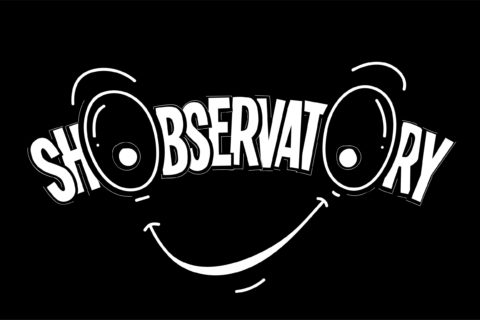If you do basics exceptionally well, then you’re probably going to excel.
This applies to everything you do. Sports, studying, relationships, oh, and market research too.
Despite this we think the basics are a bore, AI, ML and VR are what we seem to adore.
But it’s the so-called ‘boring basics’ that really pay our bills. So this series is about appreciating and upcycling our basic and most important skills!
How do you approach a brief? Not a question you’d ask on a date is it? However, it’s dating skills that allow you to approach briefs in ways that’ll wow your clients.
And wowing your client with how you approach a brief is a BIG DEAL. Why? Because how you approach a brief demonstrates your knowledge of the client’s business and their needs. Get this right and a strong proposal that leads to research romance will follow.
No pressure: there’s POF out there
Even the most successful daters (I assume…..) don’t always get a second date. Briefs are the same too. You won’t win them all. Frankly, if you win half, you’re doing well. And contrary to what you may think, the brief you’re working on now isn’t the last brief you’ll ever get.
Accepting this means you’ll approach briefs with a calmer mindset. And it’s this mindset – not the stressed ‘I must win this brief or the world ends’ alternative – which puts you in the right headspace for approaching briefs successfully.
Read their profile: show you care
Would you turn up to a date without interrogating your suitor’s social channels? Absolutely not. And briefs are similar. Before you read too much into a brief, research its contents thoroughly. Check the client’s social channels, annual reports, press coverage and Google Trends data for starters.
And most critically, interrogate the brief’s stakeholder’s LinkedIn profiles. Briefs are about meeting people’s needs. And effective communication – what your eventual proposal will be – depends on how well you know you’re the people you’re trying to win over.
By the time you speak to your client, you must be able to show that you’ve done your homework. At minimum. At best, be able to tell them something relevant you’ve found out that they don’t know.
Think outside the box profile/brief
Dating profiles are someone’s projection of their best image. Similarly, briefs often don’t show the full reality. Much like your potential date probably doesn’t own the sports car they’re pictured with, your client won’t expect a 10min survey to answer 15 objectives.
You can think outside a brief in many ways. For example:
- What data already exists that can answer the brief already?
- What other trends are relevant to the objectives?
- What knowledge from other sectors you have is important?
Get on the phone and ask questions
Matching online is akin to receiving a brief. And meeting in-person is like a first date. In the online dating world, the period between these two events involves messaging. Similarly, in-between receiving a brief and writing a proposal, communicating with your client is key.
Make arranging a phone call to discuss the brief your priority as soon as you get it. Doing so signals you’re taking the brief seriously. Not to mention giving you the chance to make sure you’re understanding the brief correctly. While collecting some ‘outside of the brief’ knowledge of course.
But asking questions about a brief is more than collecting context and clarifications. It’s also a chance to challenge the brief. Don’t be afraid to question if the brief’s suggested approach is really what’ll get your client the best results. This is more appreciated than you think. As long as you challenge a brief in ways that improve its ability to answer the business question.
Sometimes ‘it’s not you it’s me’ is best
Would you turn up for date if you weren’t sure it was worth it? No. Equally, don’t do a proposal for a brief that isn’t right for you.
If you don’t have the right experience, you can’t resource the work, or you can’t deliver the work profitably, it’s OK TO SAY NO! If a brief really isn’t for you, ‘no’ is the best response. Here’s why:
- Clients appreciate the truth. They’ll remember your honesty and eventually contact you with a brief that’s better for you
- You’ll protect both your: 1) reputation – by not proposing something you may not be a good fit for and 2) people – from investing in a proposal you’re unlikely to fulfill
Approaching briefs is harder than just swiping right. But how you do so is critical to your commercial survival. This makes going back to basics vital to making sure you’re living in brief approaching bliss.


